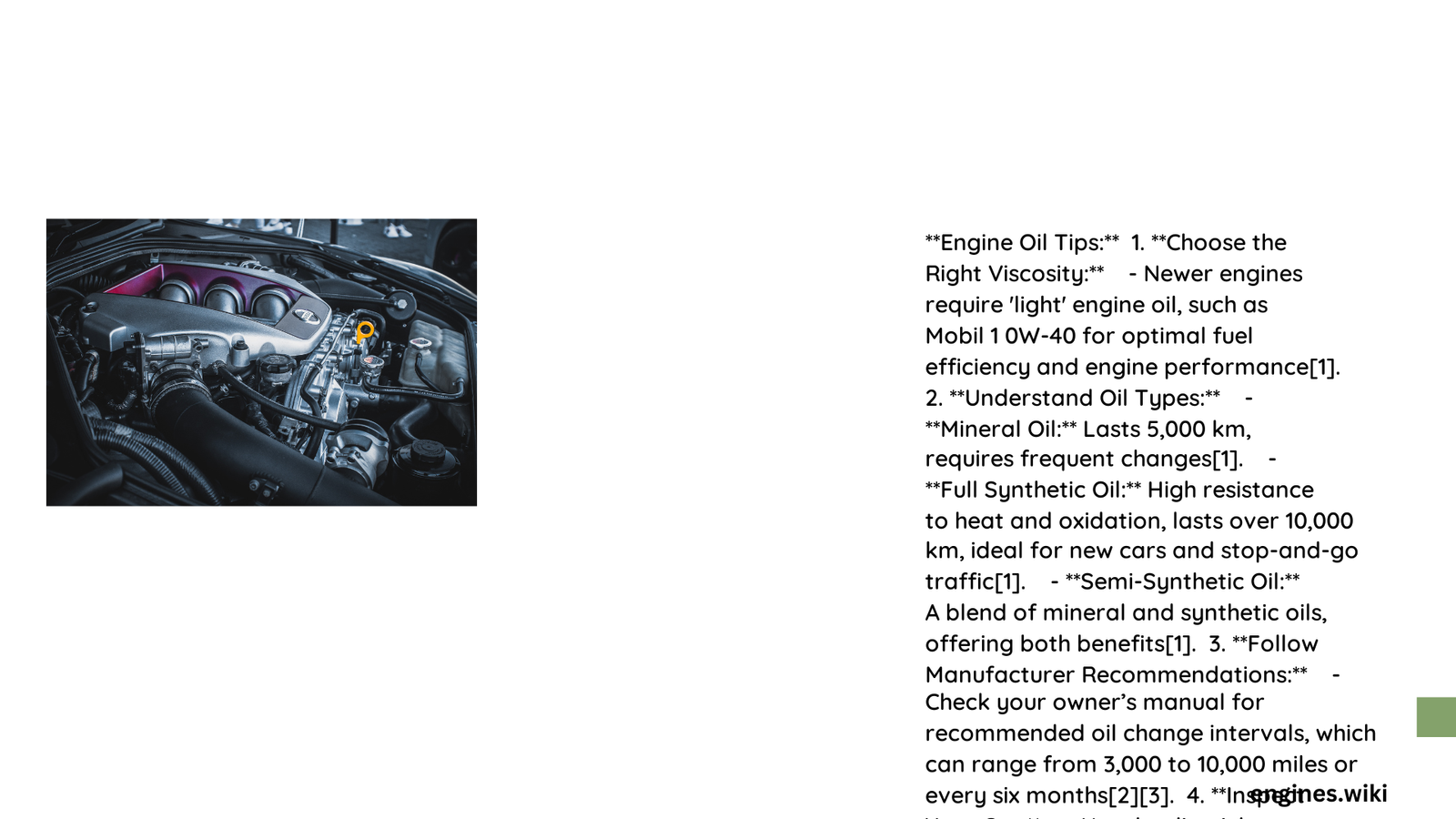Engine oil is the lifeblood of your vehicle, critical for maintaining optimal performance, reducing wear, and preventing costly mechanical failures. Proper oil selection and maintenance can significantly extend your engine’s lifespan, improve fuel efficiency, and ensure smooth operation across diverse driving conditions. Understanding the nuanced aspects of engine oil selection, change intervals, and performance characteristics is essential for every vehicle owner seeking to protect their automotive investment.
What Are the Most Critical Engine Oil Tips?
Choose the Right Oil for Your Vehicle
Selecting the appropriate engine oil is more complex than many drivers realize. Consider these key factors:
Vehicle Manufacturer Recommendations
- Always consult your vehicle’s manual
- Follow specific grade and type recommendations
- Manufacturer guidelines are tailored to your engine’s precise requirements
Oil Viscosity Considerations
| Temperature Range | Recommended Viscosity | Performance Characteristics |
|---|---|---|
| Cold Climates | 0W-20, 5W-30 | Excellent cold-start performance |
| Moderate Climates | 5W-40 | Balanced performance |
| Hot Climates | 10W-40, 15W-40 | Superior high-temperature protection |
How Often Should You Change Engine Oil?
Optimal oil change frequency depends on multiple factors:
- Synthetic Oil
- Change every 7,500-10,000 miles
- Superior longevity and protection
-
Recommended for modern engines
-
Conventional Oil
- Change every 5,000-7,500 miles
- Less expensive but shorter service life
- Suitable for older vehicle models
What Impacts Oil Performance?
Several critical factors influence engine oil effectiveness:
- Driving Conditions
- Stop-and-go traffic increases oil stress
- Extreme temperatures challenge oil performance
-
Frequent short trips can accelerate oil degradation
-
Vehicle Age
- Newer engines: Synthetic oils preferred
- High-mileage vehicles: Specialized high-mileage formulations
Advanced Engine Oil Selection Strategies
Synthetic vs. Conventional Oils
Synthetic Oils
– Higher cost
– Better temperature stability
– Enhanced engine protection
– Longer change intervals
Conventional Oils
– Lower initial cost
– Shorter service life
– Less advanced protection
– More frequent changes required
Pro Tips for Optimal Engine Oil Management
- Regular Oil Level Checks
- Monthly visual inspections
- Use dipstick for accurate measurement
-
Top up between changes if necessary
-
Monitor Oil Quality
- Watch for color changes
- Check for contamination
- Consider professional oil analysis for high-performance vehicles
Cost-Effective Maintenance Approach
- Invest in quality oil
- Follow manufacturer recommendations
- Maintain consistent change intervals
- Use oil analysis for precise maintenance scheduling
Conclusion

Mastering engine oil selection and maintenance requires understanding your specific vehicle’s needs, driving conditions, and technological advancements in lubricant formulations. By implementing these comprehensive engine oil tips, you’ll optimize your vehicle’s performance, extend its lifespan, and potentially save significant money on repairs.
